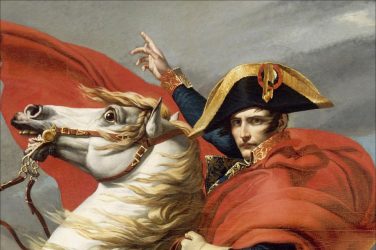Most of us think of gaffes as mistakes. To be more specific, as social mistakes. Embarrassing, reputation-damaging, stupid mistakes. But for Michael Kinsley, an American journalist who co-founded Slate, gaffes are, at least when it comes to politicians, one of those rare occasions when individuals accidentally reveal the truth. In a famous article from 1984, Kinsley said “there is spin, and there are gaffes.” Spin is what politicians wish were true and sometimes is, while gaffes are pure unadulterated truth. So what kind of gaffes do our politicians throw out and what do these say about our relationship with them?
1. The Strategic Gaffe
If we picked any European citizen at random, old or young, from the north or the south, fan of UKIP or Syriza, and asked them about the biggest gaffe maker of all times… They would probably pick Silvio Berlusconi. Berlusconi’s gaffe type, the first one we will take a closer look at, is the Strategic Gaffe, as his blunders often seem to be consciously controversial statements. The former Italian prime minister famously proclaimed himself “the best political leader in Europe…” But noticing that was a bit too humble, he added “… and in the world.”
Other world leaders like George W. Bush hold the dubious honour of having their very own word for the hysterical zingers they mouthed. “I believe that the human being and the fish can coexist peacefully” is one such Bushism, a linguistic phenomenon which even has its own Wikipedia article. But while Bush was often ridiculed, Berlusconi’s blunders have even been deemed helpful in his political successes. And that’s what makes The Strategic Gaffe different from all others. Noelle J. Molé from New York University concluded that “Berlusconi’s own humour forges ties to an Italian citizenry habituated in the 1980s to political spectacle.” So perhaps Il Cavaliere’s “It’s better to be fond of beautiful girls than to be gay”, “Another reason to invest in Italy is that we have beautiful secretaries” or “Mussolini never killed anyone. Mussolini used to send people on vacation in internal exile” are partially welcome as an unfiltered look into Berlusconi’s mind in a world of too much spin and contention. So is a gaffe still a gaffe if, besides being proof of a politician’s deep beliefs, it’s also part of a strategy to make him look like a showman? It may not make Silvio lose elections, but, in opponent Massimo D’Alema’s own words, an “unfuckable lard ass” and similar displays of Berlusconi’s exquisiteness are quite “planetary gaffes.”
2. The broken spin gaffe and the fun that follows
Perhaps the trick is that only truly involuntary gaffes damage reputations. This often happens when politicians go wild and fail to follow their advisors’ careful instructions. Or when these advisors fail to correctly predict the reactions to a
In Spain, Ana Botella, the mayor of Madrid became the source of all sorts of viral memes after her 2013 speech defending the city’s bid to host the 2020 Olympic Games. Her controversial accent and clownish manners (video here) were on TV for weeks, but it was the reference to “a relaxing cup of café con leche in Plaza Mayor” and its unusual mix of English and Spanish that made it to songs, T-shirts and of course, Twitter trending topics.specific campaign, proposal, or speech. In Norway, not your usual gaffe country, liberal leader Lars Sponheim once proposed that downloading music should be legal. He surely didn’t see the reaction of music band ENSLAVED coming. In response to Sponheim’s claims, band members drove to his farm (he happens to have one) and freely “downloaded a sheep” with the same type of motivation that had originally led the leader to make his statement: free roaming sheep are available and should be consumed!
The fact is that even our most internationally-renowned politicians have experience with gaffes that the people never forget. In Portugal’s 2002 elections, José Manuel Durão Barroso’s wife took to the stage to quote famous Portuguese poet, Alexandre O’Neill in “Sigamos o Cherne,” (Let’s follow the grouper [a type of fish]) to support her husband’s candidacy:
Sigamos o cherne, minha amiga! / Let’s follow the grouper, my friend!
Desçamos ao fundo do desejo / Let’s go down to the bottom of desire
Atrás de muito mais que a fantasia / Beyond fantasy
E aceitemos, até do cherne um beijo, / And accept a kiss, even from the grouper
Senão já com amor, com alegria… / Now with love, with joy
The artistic move was an effort to compare Barroso’s leadership skills to those of O’Neill’s grouper, and even though Barroso won the election, he is still playfully referred to as a grouper in Portuguese politics.
For another example of the dramatic and historic failure of statements that were actually planned, take Winston Churchill’s 1945 threat to UK citizens that voting Labour would create “some form of a Gestapo.” It happens to the greatest!
3. The equalising gaffe
Politicians are just like us. And there is nothing better to prove it than a good old embarrassing mistake. It can happen to anyone!
French Socialist Ségolene Royal visited China in 2007 and, affected by the jet-lag or a serious attack of spontaneous creativity, she came up with a word that doesn’t exist in French: bravitude. Her exact sentence was: “Comme le disent les Chinois (…) Qui vient sur la Grande Muraille conquiert la bravitude.” (“As the Chinese say, those who come to the Great Wall conquer ‘bravitude’.”) The amount of media coverage that this type of linguistic error generates is for some a sign of how we mediocre humans love to see the rich and powerful fall.
But Royal’s little blunder is nothing compared to British prime mininster Gordon Brown referring to a member of the public as a “bigoted woman” during an election campaign (he was ousted come polling day). As much as we expect politicians to be exemplary, unfiltered thoughts, tempers, or inappropriate language are pretty common. Just take the case of German Chancellor Gerhard Schröder’s outbursts in a televised interview right after the tight 2005 election, where he refused to believe that he might have lost the chancellorship to Angela Merkel after all. While some love these humanising moments, many voters are probably truly disappointed when the Equalising Gaffe breaks the dream of the exemplary politician who is really the best among the best. Or maybe we love that too.
The best type of Equalising Gaffe though, is probably the one that makes politicians themselves laugh. In 2012, French centrist Hervé Morin was considering running for presidency. That is, until he claimed to have witnessed the D-Day landings in Normandy, even though he was born in 1961. Some people baptised him as “Marty McFly,” which resulted in Morin congratulating the wit of the people who made fun of him.
Whether they are just easy content in the BuzzFeed era, revealers of the deep dark thoughts of our leaders, or more proof of the scope of human stupidity, good gaffes may actually help bring Europeans a little closer, if only in the belief that we all have politicians we may not always deserve.










